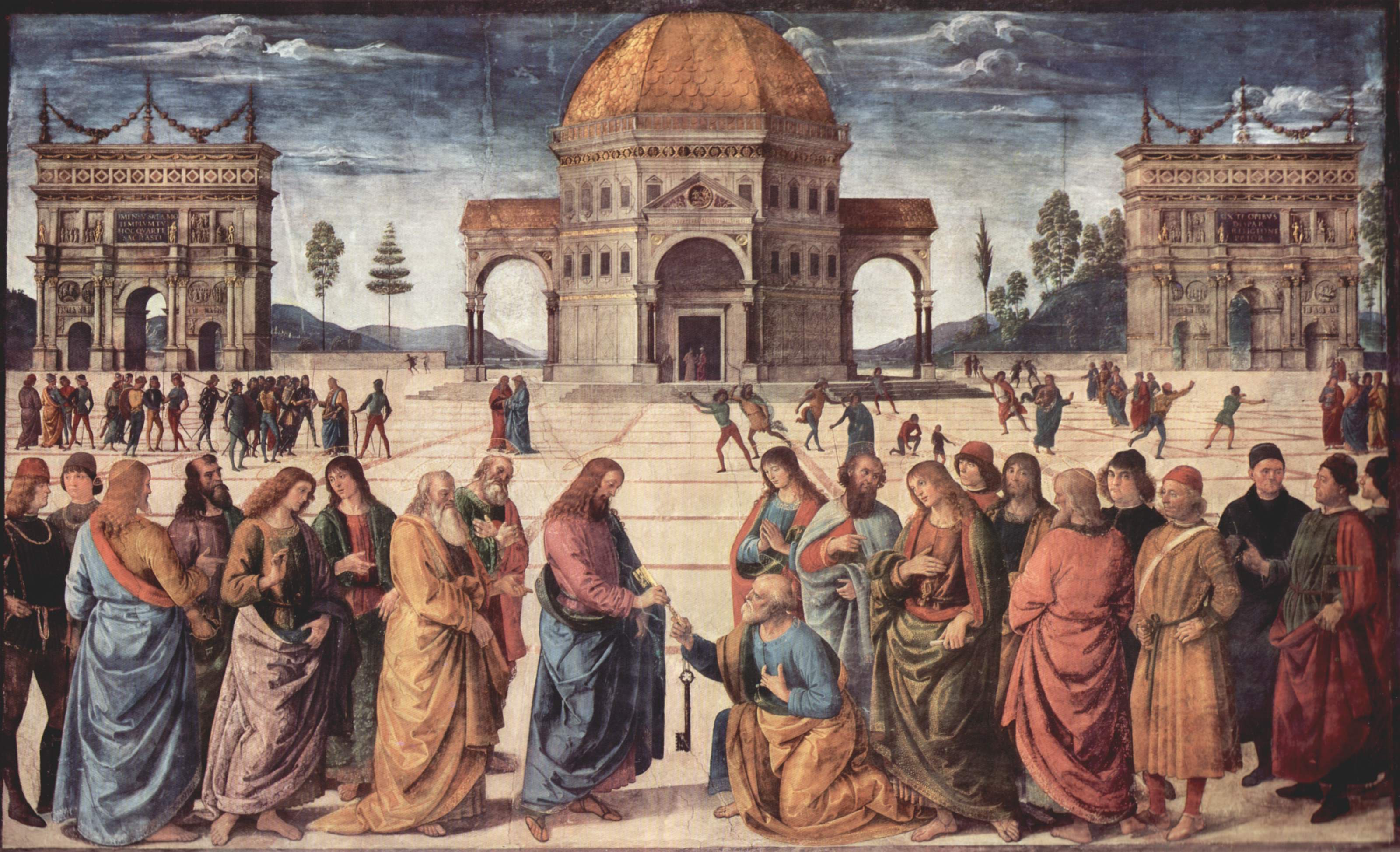 |
| Entrega de las llaves a San Pedro (The Delivery of the Keys to Saint Peter). Fresco, Sistine Chapel, by Pietro Perugino, c. 1481. Public Domain via Wikimedia. |
 The Imitation of Christ by Thomas à Kempis
The Imitation of Christ by Thomas à KempisMy rating: 5 of 5 stars
Benjamin Franklin's Virtues Journal lists "humility" as the thirteenth virtue, with the catchphrase "Imitate Jesus and Socrates" as guidance for practising humility. But what does this mean? It is easy to shrug this off with assumptions about the "What would Jesus do?" heuristic, but to specify what Franklin meant by imitating Jesus or Socrates led me to this classic text of Christian devotion from the early fifteenth century. Franklin was, at least towards the end of his life, a monotheist, and he doubted the divinity of Jesus of Nazareth. I read Kempis' work in a similar spirit. Kempis advises us to
...imitate His life and habits, if we wish to be truly enlightened and free from all blindness of heart.
"Book Two: The Interior Life" was especially enlightening, in that it echoes Epictetus. Epictetus would have us "indifferent" to externals, and while his assumptions about God or "the gods" echoes Heraclitus, Kempis is more to the point:
If you attend to God and yourself, you will little be disturbed by what you see about you.
Instances of Stoic philosophy are scattered through Book Two, less so in Book Four which looks at the taking of Holy Communion. The ongoing dialogue between "The Voice of Christ" and "The Disciple" clearly links Jesus with God (as in the Trinity), and there is clearly a Christian focus. Of course, this is a translation, and while I looked at another translation online, the differences were mostly in readability, as opposed to differences of opinion (as far as I can see). There are frequent references to what is "manly": love, self-conquest, not complaining. But also, an appreciation for the ups and downs of life. God grants His grace one moment, then withdraws it another. This is a normal thing. We should be grateful for when we experience God's grace, and patient when God withdraws His grace. Further, we should be aware that nature is about the self (as in survival), whereas grace is about the community (the social). So, "nature" would have us proud, whereas grace would have us humble. Yet, I did not have this sense of simply buckling oneself to everyone else's will - it was about self-conquest in the spiritual realm, rather than self-flagellation. I could relate this to Epictetus's and Seneca's ideas about managing our impressions - being "indifferent" to them - and James Allen's As A Man Thinketh amplifies Kempis' themes (indeed, Allen now reads as a diary-version of Kempis' Book Two). Most importantly, Kempis reminds us that "all is not lost" as we can never get it right:
You are a man, not God. You are flesh, not an angel.
I found this work mesmerising, enlightening, beautiful. Have I found the answer to Benjamin Franklin's riddle? Well, not quite. Franklin has a number of other riddles that will require a reading of Aristotle's Ethics, and there is more to be gleaned from St. Teresa of Ávila's Interior Castle. Yet I can feel that I am nearing an understanding. Of course, Mortimer Adler would say that if I cannot explain it, then I do not understand. Thankfully, Kempis tells me that I am a man, not God, so I can give myself a break. But I am glad that I took Alder's advice and I have started making notes in the margins of my books (in pencil only!), for I shall be returning to this book again and again and it will sit with my copy of Benjamin Franklin's Autobiography for ready reference.
View all my reviews
 Donate
Donate





